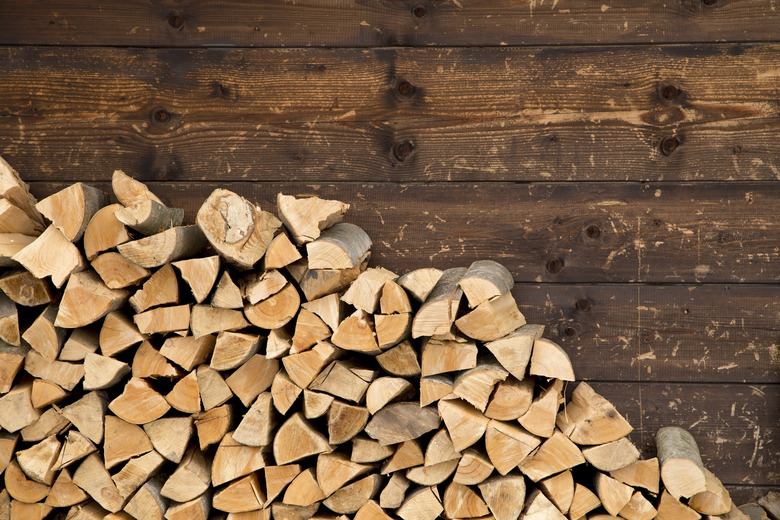What Substances Will Hold Heat For Hours?
The air that you breathe can hold heat up to 14 hours in a sealed environment. You may think that wood holds heat longer, but you'd be wrong, as wood only holds heat for up to 2 hours and 20 minutes. As a variable in thermodynamics, heat represents energy that moves or transfers from a high temperature object, like a wood-burning wood stove, to a cooler one, as in the air in the room. This heat transfer from one object to another is called convection. A heat transfer coefficient formula helps determine which objects hold heat for hours.
TL;DR (Too Long; Didn't Read)
Newton's law of cooling states that the heat transfer coefficient of the material should be as low as possible. The heat transfer coefficient is measured in special units of watts per square meter degrees Celsius. This unit is a measure of the heat energy that needs to be transferred in one second, over one square meter, to change the material by 1.8 degrees Fahrenheit or 1 degree Celsius.
Wood That Burns
Wood That Burns
As a hard, fibrous material composed mostly of cellulose and lignin, the element that makes tree branches rigid, wood releases its heat quickly. It has a very low heat transfer coefficient of 0.13 watts per square meter degree Celsius. A 1-kilogram slab of wood will cool from 104 degrees Fahrenheit (50 degrees Celsius) to 68 degrees (20 degrees Celsius) F in 2 hours, 20 minutes.
Sedimentary Sand
Sedimentary Sand
As a sedimentary material composed of the compound silicon dioxide, sand is found on beaches and in deserts all over the world. Sand has a low heat transfer coefficient of 0.06 watts per square meter degree Celsius. This means it can retain heat for very long periods of time and explains why the sand on the beach of a hot country remains warm hours after sunset. A 1-kilogram container of sand will cool from 104 degrees F to 68 degrees F in 5 hours, 30 minutes.
Expanded Polystyrene
Expanded Polystyrene
Expanded polystyrene, a synthetic plastic polymer, used in packaging goods and as a form of insulation used by the construction industry. It has a low heat transfer coefficient of 0.03 watts per square meter degree Celsius. This makes it an excellent thermal insulation in construction. A 1-kilogram block of polystyrene will cool from 104 degrees F to 68 degrees F in 11 hours, 20 minutes.
The Air Breathed
The Air Breathed
Composed of 78 percent nitrogen, 21 percent oxygen, 0.03 percent carbon dioxide and other trace gases, the air that you breathe can retain heat for many hours after being heated, and it is this fact that allows our houses to remain warm after the central heating switches off. Air has a heat transfer coefficient of 0.024 watts per square meter degree Celsius. A 1-kilogram container of air will cool from 104 degrees F to 68 degrees F in 14 hours, 15 minutes.
References
- Georgia State Univeristy: Heat
- Thermopedia: Newtons Law of Cooling
- The Physics Classroom: Heat and Temperature
- Georgia Tech: Chemical Composition of Wood
- University of Naples: The Combustion Reaction
- National Oceanic and Atmopsheric Administration: Weather and Climate
- Engineering Toolbox: Air Composition
- EPS Packaging Group: Expanded Polystyrene and the Envrionement
Cite This Article
MLA
Markings, Samuel. "What Substances Will Hold Heat For Hours?" sciencing.com, https://www.sciencing.com/substances-hold-heat-hours-7156/. 25 April 2018.
APA
Markings, Samuel. (2018, April 25). What Substances Will Hold Heat For Hours?. sciencing.com. Retrieved from https://www.sciencing.com/substances-hold-heat-hours-7156/
Chicago
Markings, Samuel. What Substances Will Hold Heat For Hours? last modified March 24, 2022. https://www.sciencing.com/substances-hold-heat-hours-7156/
